Top Trending Technology News & Highlights


"AI cannot exist in a vacuum. Deep investments are being made in infrastructure development: Google executives announce the company's $15 billion commitment to an India data center powerhouse. "
Many tech companies' fortunes are directly tied to AI technology, and billions of dollars have been invested in building the AI infrastructure. However, a top Google executive has denied that artificial intelligence is in a bubble, despite growing voices in Silicon Valley and Wall Street suggesting that a bubble may be forming and could eventually burst."It cannot just be a bubble when you consider the magnitude of the money coming in from the entire ecosystem. The construction of AI infrastructure is a significant financial commitment. The process is self-fulfilling. At an event in Delhi on Tuesday, Karan Bajwa, President of Google Cloud, Asia Pacific, told IndianExpress.com, "We are developing capabilities, building infrastructure, bringing them to market, and customers are using them."Following the announcement of a $15 billion investment by the Mountain View, California-based corporation to construct data center capacity for a new AI hub in Andhra Pradesh, the CEO made these remarks. Andhra Pradesh Chief Minister N Chandrababu Naidu, Google Cloud CEO Thomas Kurian, Finance Minister Nirmala Sitharaman, and Ministers Ashwini Vaishnaw of Electronics & Information Technology, Railways, and Information & Broadcasting attended the high-profile event in Delhi.The Visakhapatnam data center will become Google's largest AI hub outside of the US after the investment is implemented over the course of the following five years.
Published 14 Oct 2025 09:14 PM


Keep music out of your ears rather than in them with SHOKZ OpenRun Pro 2.
Given how many calls we have to answer, we all spend a lot of time between earphones. We also try to relax by taking walks and running while listening to music or podcasts. Since noise-cancelling devices literally create a vacuum in the canal, our ears are not really designed to handle in-ear audio.This explains why some people, at the very least, favor open-ear headphones and earbuds that allow for natural music listening without isolating you from the outside world. The alternative strategy is used by SHOKZ, a company that produces open-ear headphones that provide sound without causing any damage to the ear canals by using bone conduction technology. The SHOKZ OpenRun Pro 2 maintains your ear canals entirely open while producing high-quality audio through the use of bone conduction and air conduction technology. You can simultaneously hear music and your surroundings thanks to this "open-ear" design, which is especially helpful for safety when running and cycling.
Published 13 Oct 2025 05:31 PM


I gave the Google Pixel 10 Pro Fold a try… I am now convinced that I don’t need multiple devices
After a month of work-related travel to four major US cities, I returned to India and realized that managing three phones, a laptop, a tablet, a handheld console, and over-ear headphones was no longer feasible for me. It could be overwhelming at times – flying from one city to another, undergoing numerous security checks, and constantly fearing that a device might be left behind. This journey prompted me to reconsider the limits of excess, particularly given that I was going to consecutive tech events in various locations. It seems that I have at last come to understand that juggling several devices is simply not for me. For tech journalists, it is now far more sensible to have a single device, such as the Google Pixel 10 Pro Fold. Though foldables are not yet mainstream (their high cost keeps them out of reach for most consumers), in my experience, the phone-tablet duo does provide a difference compared to carrying a separate phone and tablet; In addition, the user experience appears to have enhanced.While the Pixel 10 Pro Fold may appear similar to last year’s Pixel 9 Pro Fold that I reviewed, it boasts significant enhancements including a larger battery, a quicker Tensor G5 chip, upgraded cameras, improved displays, water resistance for folding phones, and enhanced integration with Google’s Gemini AI tools. It didn’t take me long to adapt to the folding Pixel 10 Pro Fold, which felt more polished and personal, but switching from my iPhone to the Google phone was still a challenge.
Published 09 Oct 2025 04:24 PM
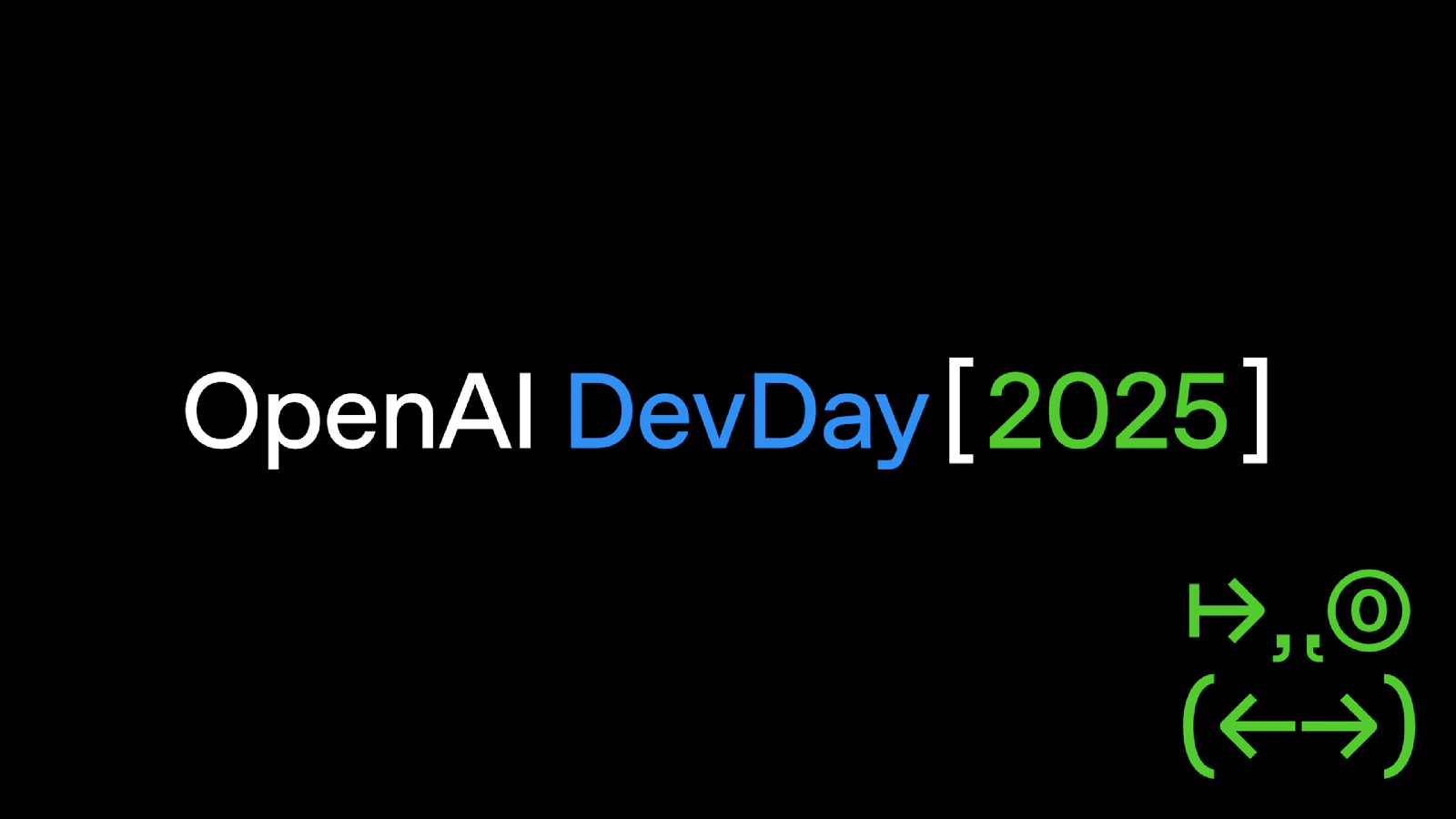

OpenAI DevDay 2025: ChatGPT introduces apps, AgentKit for developers, and cost-effective GPT models
The third edition of the DevDay developer conference has been concluded by OpenAI. This year’s conference was a mixed bag, with some new and useful features alongside incremental upgrades, in contrast to last year when OpenAI did not conduct any major product launches. It appears that OpenAI may be working to develop ChatGPT into a fully realized AI-powered operating system. Additionally, the company launched two new, more affordable real-time voice models, a developer toolkit named AgentKit, and introduced apps within ChatGPT. Take a quick glance at all the announcements OpenAI made at DevDay 2025.OpenAI CEO Sam Altman unveiled AgentKit, a robust toolkit aimed at simplifying the creation and implementation of AI agents, in an exciting announcement at the recent Dev Day event. Altman explained, “AgentKit is a comprehensive set of resources on the open AI platform designed to assist developers in moving their agents from initial concept to full-scale production.” This effort forms part of OpenAI’s wider strategy to boost developer engagement by simplifying the process of building agents. With the introduction of AgentKit, OpenAI demonstrates its dedication to maintaining competitiveness in a fast-changing environment, where numerous AI platforms are working to offer integrated solutions for developing autonomous agents that can manage intricate tasks. A key highlight of the event was the introduction of a feature that allows users to build applications right within ChatGPT, which has recently reached an astonishing 800 million weekly active users.
Published 07 Oct 2025 09:09 PM


Technology
21st century is dedicated to the Technology and technology is dominating everywhere and every part of the world and almost all the industries are now a days is technology dependent or they need technology help to drive more scale and deliveries.


Google to remove 17 underutilised features from Assistant: Here is the complete list
Google announced that it will remove 17 skills from Google Assistant starting January 26. In a recent blog post, the company said that these were some of the most underutilised features and that users would get a notification about skills that would not be available after a certain date. Here’s the full list of commands which will soon stop working on Google Assistant. The company is also making some changes to the Google app, with the microphone icon now triggering search results. While you can continue using the ‘Hey Google’ or ‘Ok Google’ keywords to trigger the digital assistant, the microphone icon in the Google app search bar will no longer be able to complete actions like turning off the light or sending messages. The change affects the microphone icon in the Pixel Search bar as well, which will now trigger voice search instead of Assistant. Google says that it is doing so to offer an improved user experience and that these skills weren’t used much in the first place. But this might also be a glimpse of what’s about to come. The company is also reportedly rebranding Google Assistant to ‘Assistant with Bard’, but a new report suggests it might rename the product to just ‘Bard.’ With Samsung rumoured to offer on-device generative AI features on the upcoming Galaxy S24 series and Microsoft Copilot directly competing with Bard, it looks like Google’s recent move may be a part of a bigger restructuring plan we might not know about. Ability to play and control audiobooks on Google Play Books.Settings or using media alarms, music alarms and radio alarms on Google Assistant-enabled devices.Managing cookbooks, transferring recipes from one device to another, playing instructional recipe videos and showing step-by-step recipes.Managing stopwatch on Smart Displays and Speakers.Using voice to call a device or broadcast messages on Family Group.Ability to send email, video or audio message using voice.Rescheduling events in Google Calendar with voice.Using the app launcher to read and send messages, make calls and control media in Google Assistant driving mode.Ability to schedule or hear previously scheduled Family Bell announcements.Asking Google Assistant to meditate with Calm.Control activities with voice on Fitbit Sense and Versa 3.Viewing sleep summary on Google Smart Displays.Calls made from Smart Displays and speakers will no longer show caller ID unless it’s made on Google Duo.Smart Displays will no longer show the ambient ‘Commute to Work’ time.Checking personal itineraries using voice.Using voice to perform actions like making payments, making reservations or posting to social media.Asking for information about contacts.


India leads the world in average yearly PM2.5 levels and dominates the worldwide indoor air pollution chart.
Dyson just published the results of the Global Connected Air Quality Data project by analysing indoor air quality information collected using over 2.5 million Dyson air purifiers via the MyDyson app, where, India recorded the highest average annual PM2.5 levels when compared to countries like China, Turkey, UAE, and South Korea. The study reports that, in all the countries, the monthly average indoor PM2.5 levels exceed the WHO long-term exposure guidance for at least six months in a year with winter being the most polluted season in all geographies. In India, the levels exceed the WHO guidance every month of the year. The study also highlights that Delhi is amongst the most affected cities when compared to Beijing, Shanghai, Shenzhen, and Busan. The report also highlighted that, in Delhi, the air inside the home was 15 per cent more polluted than outside air. The study focuses on two different types of pollutants — particulate matter (PM) 2.5 and Volatile organic compounds (VOCs), where, PM 2.5 particles will be as small as 2.5 microns in diameter, which will be invisible to the naked eye and can be inhaled. These particles are usually generated by wood burners, gas cooking, heating, pet dander, ash, and dust. In cities like Delhi, the indoor air gets 48 per cent dirtier in winter, especially during nighttime. The study highlights the need for an effective air purifier to remove a wide range of pollutants from the air, which includes technologies like HEPA filtration.Transform your home entertainment with the finest TVs from top brands, available at remarkable prices at the Amazon Sale today. Explore the captivating visuals of Redmi, the cinematic brilliance of Sony, and the cutting-edge innovation from Hisense, Samsung, LG, VU, and more. Don't miss out on these exclusive Amazon offers that bring these premium TVs within reach. Upgrade your home entertainment setup today, and seize the opportunity to enjoy the best prices on top-notch TVs.Unveil an immersive home entertainment experience with the Redmi (32) F Series, priced at just Rs 10,999 at the Amazon Sale. This HD Ready TV offers a 60Hz refresh rate, 178-degree viewing angle, and a metal bezel-less screen for captivating visuals. Its connectivity features include Dual Band Wi-Fi, 2 HDMI ports, 2 USB ports, Bluetooth 5.0, and more. With 20 Watts Output, Dolby Audio, and DTS Virtual: X, you can enjoy a powerful audio experience. This smart TV integrates Fire TV, supports popular apps, and features a voice remote with Alexa. Overall, this is one of the best deals at the Amazon Sale.Experience the brilliance of Sony TVs with jaw-dropping discounts – enjoy a minimum of 45% off during the Amazon Sale 2024. Click on the link below to explore and grab some of the best-selling TVs and upgrade your home entertainment without breaking the bank.


Apple gets a brand new office in Bengaluru, Galaxy S24 series launch
Tech News Today (January 17, 2024): Apple gets a brand new office in Bengaluru, and Samsung is gearing up for the launch of the Galaxy S24 series of smartphones with AI features. Tech News Today in India: Apple’s 2nd office in Bengaluru is located at Minsk Square near the M Chinnaswamy cricket stadium, and Samsung’s Galaxy Unpacked 2024 will be hosted today, where, the company will announce the Galaxy S24 series of smartphones. Apple opens a brand new, and a second office space in Bengaluru, located at Minsk Square near to the M Chinnaswamy cricket stadium. The new office space can accommodate up to 1,200 employees and the company also has offices in other Indian cities such as Hyderabad, Mumbai, and Gurugram. Xiaomi's new 360 Home Security Camera 2k is now on sale. Priced at Rs 3,299 the security camera offers up to 2K resolution videos with 360 panorama view. The camera is also capable of detecting humans using AI, and it also supports two-way audio for easy conversations. Google partners with NCPI to take UPI to the global state. According to the latest announcement, this new collaboration will soon enable people to pay using UPI outside India. However, right now, there is no information on which countries will benefit from this development. Motorola's latest budget 5G smartphone with a vegan leather back panel -- G34 is finally going on sale for a starting price of Rs 10,999 with a Rs 1,000 exchange bonus. The smartphone is powered by the Snapdragon 695 SoC, and it comes with 4/8 GB RAM and 128 GB of internal storage. The smartphone will be available exclusively on Flipkart and motorola.in.Designed to accommodate up to 1,200 employees, the 15-floor office boasts dedicated lab spaces, collaborative areas, wellness zones, and Caffe Macs. The Caffe Macs is a food and beverage service for Apple employees.Utilizing locally sourced materials such as stone, wood, and fabric in walls and flooring, the interior incorporates a touch of Bengaluru's essence. The office also incorporates numerous local plants, contributing to a green and eco-friendly ambiance.Apple emphasizes its commitment to sustainability, stating that the new office operates on 100 percent renewable energy and aspires to achieve a LEED (Leadership in Energy and Environmental Design) Platinum rating, the highest level of LEED certification for green buildings.Apple has maintained carbon neutrality for its corporate operations since 2020 and powered all its facilities with 100 percent renewable energy since 2018.


Scientists claim this soil-powered fuel cell can ‘run forever’
This fuel cell generates power with the help of microbes in the soil and can potentially be used in green infrastructure and precision agriculture applications. The fuel is around the size of a book and can potentially be used to fuel underground sensors used in green infrastructure and precision agriculture. It could become a sustainable, renewable alternative to batteries that use toxic and flammable chemicals which could leak into the ground when used in the soil. Also, the materials used to manufacture batteries come through conflict-affected supply chains and contribute to electronic waste. The researchers tested the new fuel cell by using it to power sensors that detect touch and measure soil moisture and published the results in Proceedings of the Association for Computing Machinery on Interactive, Mobile, Wearable and Ubiquitous Technologies. The former capability can be used for tracking passing animals. The researchers also added a tiny antenna to the soil-powered sensor to transmit data to a nearby base station by reflecting existing radio frequency signals. “The number of devices in the Internet of Things (IoT) is constantly growing. If we imagine a future with trillions of these devices, we cannot build every one of them out of lithium, heavy metals and toxins that are dangerous to the environment. We need to find alternatives that can provide low amounts of energy to power a decentralized network of devices. In a search for solutions, we looked to soil microbial fuel cells, which use special microbes to break down soil and use that low amount of energy to power sensors. As long as there is organic carbon in the soil for the microbes to break down, the fuel cell can potentially last forever,” said Northwestern alumnus Bill Yen, who led the work, in a press statement. ‘Soil-based microbial fuel cells (MFCs) are not new. They were first created in 1911 and they operate not all that differently from a battery. They have an anode, a cathode and electrolyte. But instead of using chemicals to generate electricity, they harvest electricity from bacteria that naturally give out electrons to nearby conductors. These electrons from anode to cathode to create an electric circuit. “Although MFCs have existed as a concept for more than a century, their unreliable performance and low output power have stymied efforts to make practical use of them, especially in low-moisture conditions,” added Yen. This is because they need to stay hydrated and oxygenated to operate without disruption, which is quite difficult in dry dirt. But the new fuel cell developed by the researchers has a secret ingredient that makes it perform better under dry conditions — its geometry. Instead of using a traditional design in which the anode and the cathode are parallel to one another, this one uses a perpendicular design. The researchers found this fuel cell design generated 68 times the power needed to operate the sensors and was also strong enough to withstand large changes in soil moisture. Interestingly, the researchers say all components of the soil-based MFC can be purchased at a local hardware store. Also, theoretically, as long as there are microbes and carbon in the solid for the former to break down, the battery can keep running indefinitely.Meanwhile, the lower end of the cathode will remain nestled beneath the surface, and this makes sure that it stays hydrated from the moist soil there even when the top soil dries out in the sunlight. One part of the cathode is coated in waterproofing material to make sure that it can breathe even during a flood.


AI Will Have a Transformative Impact on Software Development in 2024
Another unpleasant hallmark of 2023 is its reputation for human error in costly security breaches. Verizon’s 2023 Data Breach Investigations Report declared that the human element is prominent in 74% of all breaches.Mistakes such as privilege misuse, accidental data exposure, and falling victim to social engineering attacks stem from various human factors and the critical consequences of the compromise of secrets, lamented Ev Kontsevoy, CEO & co-founder at Teleport, developer of the Teleport open infrastructure access platform.This prevalence of issues has resulted in organizations embracing biometric hardware and identity verification. But attackers, rather than solely fixating on stealing passwords, are now actively seeking a range of secrets embedded within an organization’s infrastructure, including browser cookies, private keys, API keys, and session tokens, he offered.“To keep up with the pace of threats, organizations will recognize they must move to fully secretless authentication in 2024 to secure the wider spectrum of sensitive access points still vulnerable to threats,” Kontsevoy told TechNewsWorld. He predicted that the widespread adoption of secretless access in the coming year will create immunity to human error and significantly hamper threat actors’ operations. Kontsevoy pulls no punches in describing the changing events software developers will have to execute. A significant change will involve a historic shift in how companies approach network security. Gone will be the IT-centric strategy of dedicated security teams. “We’ll see the role of security teams shifting to those of consultants and auditors, with engineering teams responsible for choosing vendors and implementing security protocols,” he added. “Cybersecurity teams will be responsible for policy and ensuring that workflows and systems meet security requirements.”According to Yoav Abrahami, chief architect and head of Velo at website building platform company Wix, we are in the midst of a massive information revolution sparked by OpenAI, and artificial intelligence tools will continue to augment other developer integrations, he shared.These will include innovations in DevOps, data mining, and project management. Core web vitals will become more critical, forcing developers to put more emphasis on it, he observed.“Developers are shifting from their local workstation to a cloud workstation. Those who make the leap will stay ahead of the curve,” he told TechNewsWorld.Parallels exist between AI and low-code use cases and adoptions. AI is helping organizations and individuals to analyze, interpret, and manage massive data sets, create initial drafts of content, find answers to questions, and read medical images such as X-rays, according to Digibee CTO Peter Kreslins.Legacy systems will become much less in existence in 2024. They can be described simply as systems that are in place and working. “That is a reasonable but perhaps too charitable description. The reality is that legacy software is a substantial barrier to innovation and change,” Kreslins said.The capability of modern integration platforms to integrate legacy systems with current systems enables organizations to continue using legacy systems that perform well as part of their modern IT stack if they prefer.


Fear of Cyberattacks on Smart Devices: 1/3 of Americans worry about their smart gadgets being hacked
Top devices raising concerns among consumers are the Amazon Echo, security cameras, Google Nest thermostats, smart doorbells, and smart TVs, revealed the research by CraftJack, a construction contracting services provider in Evanston, Ill. Four out of five of those devices — with the exception of smart doorbells and the addition of smart locks — ranked among the top five devices consumers said they wouldn’t allow into their houses over privacy concerns, noted the study, which was based on a survey of 807 Americans ranging in age from 18 to 79 who have internet-enabled devices in their homes.“We’ve had substantial issues with people hacking nanny cams and laptop cameras in order to get a view into homes,” he told TechNewsWorld. “While security over this class has improved, the desire and tools to hack into these devices have been increasing, making it ever more critical that security should be one of the considerations when purchasing smart home tech.”Given the proliferation of smart devices in the home, added Mark N. Vena, president and principal analyst at SmartTech Research in San Jose, Calif., this is an incredibly under-reported topic.“The increasing integration of smart devices into daily life raises concerns about cybersecurity,” he told TechNewsWorld. “Consumers worry about the potential hacking of these devices, risking privacy invasion, data theft, and even physical harm.”“From smart home appliances to wearables, vulnerabilities exist, demanding robust security measures,” he continued. “Breaches can compromise sensitive information, leading to financial loss or identity theft.”“As reliance on interconnected devices grows, addressing these concerns becomes crucial to ensure a secure digital environment for consumers globally,” he said.While consumers should be worried about the risk they bring into their homes with smart devices, it should be the same kind of worry that drives homeowners to lock their doors, maintained John Gallagher, vice president of Viakoo Labs, an enterprise IoT security company, in Mountain View, Calif. “Any IP-connected device comes with concerns of it being hacked, especially smart devices because they can carry personal information and also often will have business information,” he told TechNewsWorld.“In some ways, the risks for consumers are less than IoT devices in the enterprise,” he continued, “where threat actors have access to more devices and likely more of a payout from their exploits. However, even in the home, the risks should be assessed on a device-by-device basis.”


Tiger Woods Net Worth and Businesses—PGA, Nike, Gatorade, and a Mini Golf Chain
Golf legend Tiger Woods may have parted ways with Nike after 27 years, but he has made millions from his career as a pro golfer and lucrative endorsement deals with other major brands including Gatorade, Rolex, and Monster Energy. Considered one of the best golfers of all time, Woods is one of the few billionaire athletes in the world—and is only the second active athlete who is a billionaire, behind NBA star LeBron James. Woods has a net worth of $1.1 billion as of January 2024, according to Forbes.1 Here's how Tiger Woods built his fortune. In his 27-year career as a professional golfer, Woods accumulated 106 worldwide wins and 15 majors. He has 82 PGA Tour wins, tied with golfer Sam Snead for the most PGA Tour wins in history.Throughout his career as a pro golfer, Woods has earned about $1.8 billion, according to an estimate by Forbes.1 Woods has also earned a record-setting $121 million in prize money from PGA tours.3 PGA Tour. "Career Earnings."However, Woods' impressive earnings from golf are not the only way he amassed his wealth—in fact, they account for less than 10% of his net worth, according to Forbes. The rest of his fortune comes from major endorsement deals and a series of business ventures.Woods' 27-year partnership with Nike certainly contributed to his massive fortune as the sporting company was his biggest backer. Woods' deal with Nike was said to be worth about $500 million throughout the life of the contract. That's not the only major partnership Woods had, though. The golfer had a lucrative tie-up with sports drink company, Gatorade, which paid him an estimated $100 million over several years. However, the company ended its partnership with Woods in 2010 after news of several extramarital affairs surfaced. AT&T and technology consulting company Accenture were also among the brands that ended their partnerships with Woods at the time. Woods partnered with energy drink company, Monster Energy, in 2016 and has continued his endorsement deal with them. The pro golfer has been seen playing out of a Monster-branded golf bag and has also represented the brand's other drink, Monster Hydro Super Sport since 2022.Several of Woods' businesses have to do with golf—he owns a golf course design firm, TGR Design, golf simulator tool Full Swing, as well as an indoor mini golf chain, Popstroke. Popstroke has nine locations across Florida, Arizona, and Texas and anticipates opening an additional 15 sites in 2024 and 2025.Woods is also a shareholder in global real estate development company Nexus Luxury Collection, along with singer Justin Timberlake. In October 2023, the company announced that Woods and Timberlake will be opening a sports and entertainment gastropub in St. Andrews, Scotland, through Nexus. The premium venue includes dining and lounge areas, and Woods' own Full Swing golf simulators.Woods is no stranger to real estate and has bought and sold multiple million-dollar properties. His home on Jupiter Island costs an estimated $54 million.


New Worker Classification Rule Could Disrupt the US Gig Economy
Uber drivers and other gig economy workers could be legally classified as employees under a new Department of Labor rule that goes into effect in March. The new rule already faces at least one lawsuit, filed by freelance writers who want to remain "independent contractors" rather than employees. Employees are entitled to overtime pay, minimum wage, and other benefits not available to contractors.While people who work as contractors value the flexibility, employment law experts say there's no reason employers couldn't offer flexible hours alongside employee status and the benefits that go along with it. App-based ride-sharing services such as Uber (UBER) and Lyft (LYFT) earned the title of “disruptors” for the way they drove traditional cab companies out of business. Now, they’re trying to fend off the disruption that could be coming for them, in the form of a new federal labor rule. A new regulation on worker classification released this month is already facing at least one legal challenge, and will likely see more pushback from gig economy companies whose business model it threatens. The new law could turn the gig economy upside down, and affect many of the estimated 22.1 million Americans who work as independent contractors, employment experts say. Earlier this month, the Department of Labor released details on a rule setting standards on when a worker counts as an employee as opposed to an independent contractor, entitling them to overtime pay, unemployment insurance, and a slew of other benefits under the law. The new rule, first proposed in 2022, is set to go into effect in March.This week, a group of freelancers, including three New Jersey-based writers, sued the Department of Labor to overturn the new rule. At least one major business lobbying group is also considering legal action. Should the government give “employee” status to workers currently classified as contractors, it would threaten the business models of companies such as Uber, Lyft, and Doordash (DASH), whose contract workers cost their employers much less than traditional employees would.Uber and the Flex Association—a trade group representing gig economy companies—both released statements last week saying that the rule would have no immediate impact on their businesses. “This rule does not materially change the law under which we operate, and will not impact the classification of the over one million Americans who turn to Uber to earn money flexibly,” Uber’s statement reads.
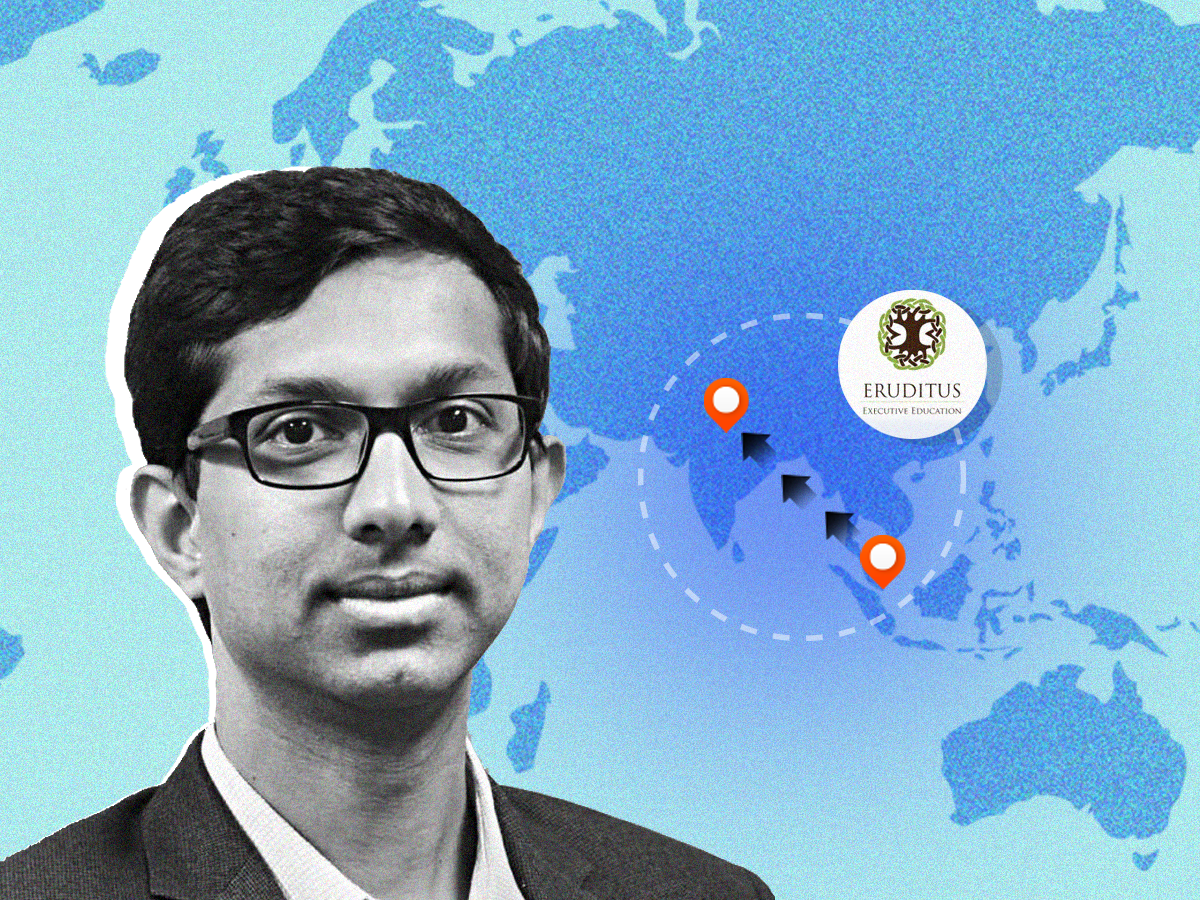

Edtech Eruditus considers an IPO as it joins the line of Indian firms doing reverse flips.
According to persons with knowledge, the edtech unicorn Eruditus intends to relocate its headquarters from Singapore to India. It will become the next in a long line of foreign-domiciled firms planning a homecoming. Now let's get started:SoftBank-backed comeback child In preparation for a flip back to India, Eruditus is in talks with several law firms and two of the Big Four firms. The decision is related to its intentions for this possible IPO, considering that markets are valuing profitable companies at multiples of their earnings. Eruditus, a company devoted to higher education, is worth $3.2 billion.Drawing a straight line: Indian startups with foreign holding corporations are in different stages of returning to India from places like Singapore and the US. The plans of digital payments company Razorpay to "reverse flip" from the US to India were originally covered by us in May of last year. Together with e-commerce firms Udaan and Meesho, other fintechs including Groww and Pine Labs have also entered the list. Fintech companies are primarily concerned with regulatory matters; nonetheless, some are relocating their registered firms in order to go local public.Numbers game: With revenue of Rs 3,322 crore ($400 million) for the fiscal year 2023, Eruditus is currently the second-largest edtech in India. The business, which reports from July to June, saw a 75% increase in full-year revenue over the prior year.Byju's, the front-runner, has not yet released its audited FY23 financial statements. According to people with knowledge, the troubled company has made over Rs 5,000 crore in sales but has lost more than Rs 8,200 crore. They stated that although it has not yet submitted its FY22 profits to the Registrar of Companies, it has given the investor access to the financials.Overview. Unicorn Edtech Eruditus plans to "reverse flip," or move their domicile from Singapore to India. Pine Labs, Udaan, Razorpay, and Groww are just a few of the Indian online companies that Eruditus is joining. Eruditus is assessing going public on the local stock exchanges.As of fiscal 2023, Eruditus has amassed revenue of Rs 3,322 crore ($400 million), making it the second largest edtech company in India. The business, which reports from July to June, saw a 75% increase in full-year revenue over the prior year.Byju's, the front-runner, has not yet released its audited FY23 financial statements. According to people with knowledge, the troubled company has made over Rs 5,000 crore in sales but has lost more than Rs 8,200 crore. They stated that although it has not yet submitted its FY22 profits to the Registrar of Companies, it has given the investor access to the financials.


Zomato Notices An Increase In Sovereign Fund Stakes From Singapore And Kuwait
Large sovereign investors from Kuwait and Singapore increased their interests in the listed foodtech startup Zomato at a time when unicorn makers Tiger Global and SoftBank had completely exited the market.Kuwait Investment Authority reportedly purchased 88 million shares in the September quarter and then added an additional 6.7 million shares in the December quarter, increasing its interests, according to an ET report. Conversely, during the December quarter, Temasek, the national fund of Singapore, purchased 95 million shares in the business. Temasek already had 169 million shares through its investment subsidiary.The nation's mutual funds have increased their holdings in Zomato by twofold in addition to the sovereign funds. Mutual funds held a 12.34% interest in the company as of December 2023, about twice as much as they had owned 5.72% of the same time the previous year. As was previously said, it's interesting to note that these changes happened at the same time as institutional investors SoftBank and Tiger Global were pulling out of Zomato.Tiger Global sold 12.24 Cr shares, or 1.44% of the foodtech behemoth Zomato, in open market transactions in August of last year.According to the BSE's bulk deal data, Tiger Global's investment vehicle Internet Fund III Pte Ltd sold the shares in several tranches at an average price of INR 91.01 Cr. The venture capitalist received INR 1,123.84 Cr. in total for the shares that were sold. The prominent French bank Societe Generale purchased the majority of these shares. The other buyers of the offloaded shares were BNP Paribas Arbitrage, Axis Mutual Fund, Morgan Stanley Asia Singapore, Societe Generale, and Kotak's midcap fund.By the end of June 2023, Tiger Global's Internet Fund III owned 1.44% of Zomato. Masayoshi Son-led SoftBank exited the foodtech behemoth situated in Delhi-NCR just last month when it sold 9.35 Cr of Zomato shares in an INR 1,127 Cr block sale.Among the buyers of these shares were Morgan Stanley Asia Singapore, Invesco, ICICI Prudential Insurance, Goldman Sachs (Singapore), and Kadensa Capital.In a block transaction worth INR 621.6 Cr earlier this month, Motilal Oswal Mutual Fund sold 4.5 Cr shares of Zomato for INR 138.15 apiece. The company's stock fell 3% as a result of this block transaction. On January 20, 2023, at the closing bell, Zomato's shares traded for INR 130.10.
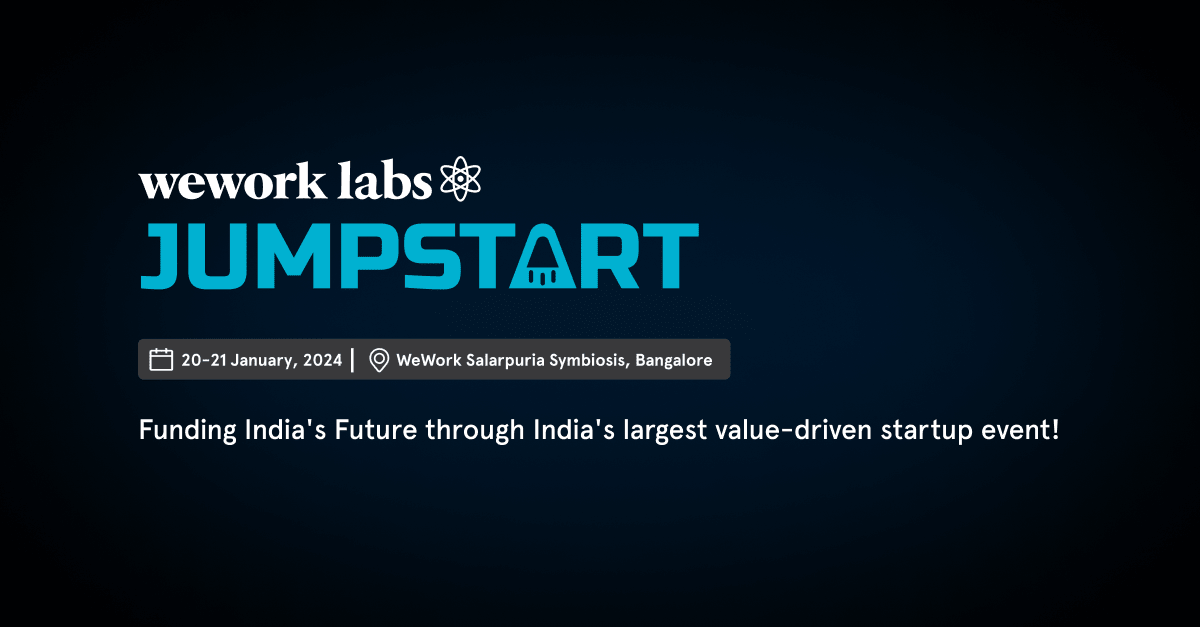

JUMPSTART 2024 IS LAUNCHED BY WEWORK LABS TO SUPPORT EARLY-STAGE START-UPS
WeWork India's investment and acceleration division, through its Growth Campus initiative, would give entrepreneurs discounted access to workspaces, a chance to network with founders, investors, and mentors, and the chance to apply for $200,000 in pre-seed money through investments.WEWORK LABS, THE investment and acceleration division of WeWork India, launched Jumpstart 2024 on Saturday. The program's objectives are to assist early-stage start-ups by introducing them to mentors and the investor community, giving them access to workspaces at a discounted rate, and providing them with a $200,000 seed investment in capital.vStartups and entrepreneurs can get discounted access to workplaces worldwide through WeWork Labs' Growth Campus program. They can also grow their businesses by interacting with mentors, investors, and founders, and they can receive up to $200,000 in pre-seed funding through investments.The arm's goals are to support fledgling companies with idea and product validation, early customer acquisition, market expansion, recruiting, mentorship, and funding.For instance, WeWork will work with founders and carry out the product idea validation using its mentor community within its vast network, explained Arvind Radhakrishnan, associate director and head of WeWork Labs, WeWork India.For example, according to WeWork India's associate director and head of WeWork Labs Arvind Radhakrishnan, WeWork would collaborate with founders and use its extensive network of mentors to validate product ideas."We'll streamline the entire product testing process so that the founder sets up their product for testing in a single conference room. After that, they fill out a brief form with information and leave knowing if their product is useful or not. Would anyone purchase it? "What else should I include in the product roadmap to improve its usefulness?" "And what would the cost be to the people?" Thus, that saves a ton of time, he remarked.Access to WeWork Labs' tech stack, which will aid companies in expanding their operations into new markets, will also be made available through the Growth Campus program. "We identified 13 business building domains for our partner stack, starting from fundamentals like Cloud, Sales, Marketing, Finance, Legal, and even Mental Health," stated Radhakrishnan. WeWork Labs began identifying leaders in these industries with startup-friendly services that address problems with the least amount of friction, he continued. Among the partners are Google, IBM, and AWS. The investment and acceleration division has developed a thesis to identify viable startups and has chosen the consumer services and retail, fintech, healthcare, construction and property tech, and SaaS as their focal areas for further development.WeWork Labs now offers 330 businesses subsidized offices, and by the end of the next year, it hopes to have increased that number to 1,000. WeWork India established its investment and acceleration division in 2018 in an effort to support early-stage companies by providing them with subsidized workspaces and carefully selected founder communities. This was done because the real estate provider was drawing a lot of small-sized teams and enterprises. WeWork Labs did not, however, decide to begin providing financial support for the entrepreneurs until 2023. You are capable of doing all of things, but capital is the kind of fuel that is required. The goal of startups is to turn a profit. WeWork Labs provided funding for our modest start in 2023 after several variations on how to approach this, according to Radhakrishnan."Rather than adding something to the offerings, I think what I want to focus on is being able to deliver it at scale," he said in response to a question about future offerings WeWork Labs wants to add to the program. In addition, he stated that he would like to see the mentorship community grow, enter new markets, serve micromarkets, and switch to larger checks.


Wow! Momo To International Battery Company: $136 million was raised this week by Indian startups
Following the $1 billion that start-ups raised in December, just around one-fourth, or $250 million, has been raised in the first three weeks of January. The start-ups had raised $145 million and $58 million in the preceding two weeks, respectively. Up till the most recent week of January 19, 2024, 21 start-up agreements raised $136 million for startups. Once more, a small number of names dominated the start-up story in the section.There were just 21 deals this week as opposed to 25 deals the previous week. That suggests that there are a lot of middle-tier transactions that typically cost between $4 and $5 million. Due in major part to the significant money raised by start-ups in the second and third week of December 2023, the start-up funding in the most recent week was -41.9% lower than the average of the previous five weeks. This is the tale of the last six weeks' startup fund-raising.The start-up financing for the most recent week, which concluded on January 19, 2024, decreased by -12.4% week over week but significantly decreased by -41.9% when compared to the average of the previous five weeks. The start-up funding for the week really represented the second week in a row that it exceeded $100 million. The start-up funding has remained above $100 million for four of the past six weeks. Though the amount of start-up funding in the last two quarters has remained much lower year over year, it is evident that the momentum from December is carrying over into January as well. This is the tale of the week's biggest start-up fundraising deals, along with the financiers' information and the application of Whoa! Momo receives $42 million to grow its QSR business. Leading QSR start-up brand in India, Wow! Momo, is set to get an investment of $42 million (Rs350 crore) from Khazanah Nasional Bhd, the Malaysian Sovereign Fund. A combination of primary and secondary infusions will be invested. In addition to Khazanah, Wow! Momo's departing investor, OAKS Asset, would provide Rs60 crore to the startup investment round. The company plans to use the capital round to support the quick service restaurant (QSR) brand's rapid growth and expansion. Additionally, money will be used to support R&D and distribution. In addition to its main Wow! Momo brand, other well-known brands it carries include Wow! China and Wow! Chicken.$35 million is secured by International Battery Company (IBC) for its aspirations to expand into India. In Karnataka, India, IBC intends to establish a green battery manufacturing factory for electric vehicles. The $35 million (Rs 291 crore) in finance is meant to extend its plans for manufacturing in India. RTP Global led the fundraising round, which also included Beenext, Veda VC, and other influential international investors with bases in the US and South Korea. IBC is a supplier of rechargeable batteries to its clients in the small mobility industry. Its unit is expected to begin production in 2025. The $35 million investment is a part of RTP Global's Pre-Series-A capital round, in which Beenext, Veda VC, and a few other key US and Korean investors also participated.FinAGG raises $11 million to improve MSMEs' access to finance In its most recent funding round, which was headed by Blue Orchard and Tata Capital, FinAGG raised $11 million (Rs 91.40 crore). The money received will be put toward growing and enhancing FinAGG's offline and online presence. The money will also be used to promote product innovation and expand the company's worldwide reach. By the way, distributors, retailers, and MSMEs involved in a brand's upstream and downstream supply chain can apply for credit solutions from FinAGG. In addition to Blue Orchard and Tata Capital, the fundraising round also involved participation from SIDBI and Prime Venture Partners. Prime is a current FinAGG investor.$6 million is raised by Alt Mobility to expand the EV Asset Management Platform. In 2021, Dev Arora, Anuj Gupta, Manas Arora, Harsh Goyal, and Jayant Gupta launched Alt Mobility. In a Pre-Series-A financing round, it has raised $6 million (Rs50 crore). Shell Ventures, Eurazeo, EV2 Ventures, and Twynam led the funding round. With its asset management platform, Alt Mobility facilitates fast EV fleet management for third parties.
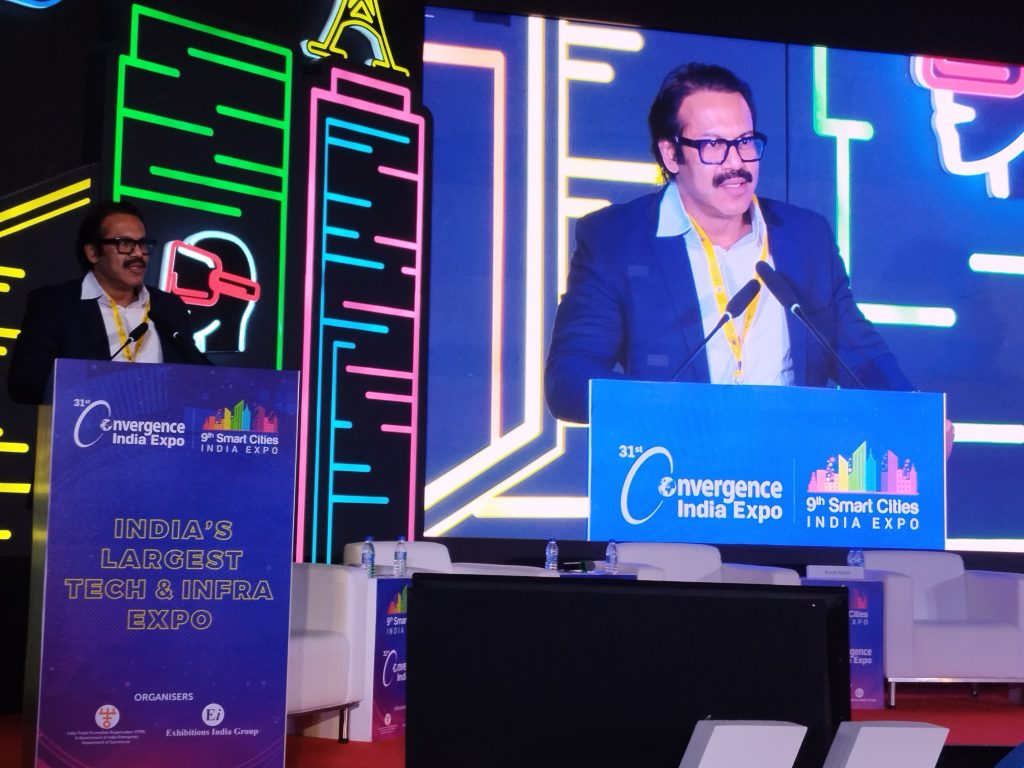

ITPO New Delhi will host the 9th Smart Cities India Expo over three days.
The highly anticipated 9th Smart Cities India 2024 Expo is set to happen virtually and at Pragati Maidan in New Delhi from January 17–19, 2024. It is an international event. Several important organizations focused on sustainability and urban development have joined forces to host this event.The exhibition is a key venue for smart city advancement and will explore the relationship between urban development and advanced technologies. Over the course of the three days, prominent professionals from a variety of sectors will impart their knowledge on the changing landscape of smart cities through a variety of presentations and panel discussions.Important Expo Topics: Combining Renewable Energy and Green Buildings Creative Approaches to Water Conservation and Environmental Cleanup Progress in Urban Mobility Intelligent ICT Applications for Optimizing Resources Opportunities and Challenges for Sustainable Urban DevelopmentOur involvement in this occasion demonstrates our dedication to creating intelligent, sustainable urban landscapes. Professionals, public servants, business executives, and anybody else with an interest in the future of urban living should not miss this event. Participants will have thought-provoking conversations and acquire insightful knowledge, creating a cooperative atmosphere for the development of smart city projects.From January 17–19, 2024, Pragati Maidan in New Delhi will host the 9th Smart Cities India Expo.January 18, 2024, New Delhi: The "National Smart Cities Mission Pavilion" is where the Ministry of Housing and Urban Affairs (MoHUA) and the Smart Cities Mission (SCM) are exhibiting the mission's accomplishments. Models of some of the most significant projects are on display in the National Pavilion. These projects include the Digitization of Manuscripts of Prayagraj Smart City, Area-Based Development of Udaipur Smart City, Connecting Past with Future of Surat Smart City, and Chappan Dukaan of Indore Smart City.On January 19, 2024, a City Leader's Conclave will be held. This event will bring together private entrepreneurs and city leaders to discuss city initiatives and find appropriate solutions for creating sustainable and livable cities. On January 19, 2024, the Smart Cities India Awards will be place to honor the best practices in the 100 Smart Cities and to recognize projects that have had an impact on making our cities livable, sustainable, and economically viable.From January 17–19, 2024, Pragati Maidan in New Delhi will host the 9th Smart Cities India Expo. Key verticals of the smart city framework, such as Smart ICT, Smart Energy, Buildings, Transport, Water, and Clean India, are featured in the three-day exhibition, which is being organized by the Exhibitions India Group and the India Trade Promotions Organization (ITPO). These verticals provide a platform for deeper communication and a hands-on approach to bringing smart cities to reality.Overview of the Smart Cities Mission: Each of the 100 Smart Cities has created Special Purpose Vehicles (SPVs) to carry out Smart City Projects. Approximately 8,000 multi-sectoral projects valued at over ₹1.7 lakh crore are being developed by these 100 SPVs. As of January 15, 2024, more than 6,650 projects totaling over ₹1.32 lakh crores had been completed by the 100 SPVs.


Repurchase Right Notification for 0.00% Convertible Senior Notes due 2028 Announced by MakeMyTrip Limited
January 18, 2024, Gurgaon, India—(BUSINESS WIRE)—Leading Indian travel service provider MakeMyTrip Limited ("MakeMyTrip" or the "Company") (NASDAQ: MMYT) announced today that it has sent out a Repurchase Right Notice ("Repurchase Right Notice") to holders (each, the "Holder") of its 0.00% Convertible Senior Notes due 2028 (CUSIP No. 56087F AB0) (the "Notes").If the notes are not repurchased, redeemed, or converted before then, they will mature on February 15, 2028. In accordance with the provisions of the February 9, 2021, Indenture (the "Indenture") between the Company and The Bank of New York Mellon, trustee, regarding the Notes, each Holder may demand that the Company repurchase the Notes on February 15, 2024, and February 15, 2026 (roughly three and five years after the Notes were first issued, respectively) (the "Repurchase Right"). The Notes' issuer, the Company, is required to purchase all of the Notes at par on the Repurchase Date (as specified in the Indenture), which falls on February 15, 2024, provided that the Notes are properly tendered by theThe Company filed a Tender Offer Statement on Schedule TO in accordance with the regulations set forth by the United States Securities and Exchange Commission (the "SEC"). There is currently no advice or recommendation from the Company, its board of directors, or its staff to any Holder regarding whether or not to exercise their Repurchase Right.Under the terms of the acquire Right, each Note Holder may demand that the Company acquire all of their Notes, or any portion of their Notes that is an integral multiple of the US$1,000 principal amount, on February 15, 2024.According to the terms and conditions of the Indenture and the Notes, the buyback price for such Notes will be 100% of the principal amount of the Notes to be repurchased. There is no interest due on the Notes as of this date, nor does the Company anticipate any interest to be due on the Repurchase Date. As of January 12, 2024, the total principal amount of the Notes outstanding was US$230,000,000.00. Should the Repurchase Right be exercised and all outstanding Notes be turned in for purchase, a total cash purchase price of US$230,000,000.00 will be paid.


Nasdaq-Listed Zoomcar’s India Entity Sees Loss Triple To INR 237 Cr In FY23
OVERVIEWZoomcar India reported a 221 percent surge in net loss to INR 237 crore in FY23 from INR 74 crore in the previous fiscal year. Operating revenue for Zoomcar India fell 27% from INR 94.9 Cr in FY22 to INR 69.1 Cr in FY23. Since launching on the Nasdaq on December 29, 2023, Zoomcar's shares have increased by 38%. After completing a merger of a special purpose acquisition company (SPAC), Zoomcar debuted on the Nasdaq last month. The net loss of its India entity increased by more than 3.2X for the fiscal year that ended on March 31, 2023. In the fiscal year 2022–2023 (FY23), Zoomcar India reported a net loss of INR 237 Cr, a 221% increase from the INR 74 Cr recorded in the prior fiscal year. Founded by David and Greg Moran Zoomcar is a self-driving car rental business that launched in 2013. The startup pairs together hosts and guests, who may rent a variety of cars at reasonable rates. Operating revenue for Zoomcar India fell 27% from INR 94.9 Cr in FY22 to INR 69.1 Cr in FY23. The business gets funding from subscriptions and vehicle rentals, to name a couple. Zoomcar's overall revenue, including other income, decreased 27% from INR 94.9 Cr in FY22 to INR 69.1 Cr in the year under review. 90 percent of Zoomcar's business, according to Moran, came from India in a recent interview with CNBC-TV18. The business is present in Egypt and Indonesia as well. Where Was Zoomcar Expended? Zoomcar India had a 10% decrease in spending from INR 359.1 Cr in FY22 to INR 321.8 Cr in FY23. Employee Benefit Costs: The majority of the startup's expenses were allocated to employee costs. Employee costs made up 39.5% of Zoomcar's total expenses, or INR 127.4 Cr. From INR 119 Cr in FY22, it increased by 7%. Advertising Expenses: The startup spent INR 39.5 Cr, a 37% decrease, on advertising during the year under review from FY22's INR 62.3 Cr. Additionally, it paid for incidental expenses of INR 78.4 Cr. It did not, however, include a breakdown of this expense. Following a business combination with Innovative International Acquisition Corp., a company headquartered in Cayman Islands, Zoomcar began trading on the Nasdaq on December 29. Since listing, the company's shares have increased 38%; as of last trade, they were trading at $5.11. Adarsh Menon, a senior executive at Flipkart and Hindustan Unilever, was appointed president of Zoomcar earlier this month.
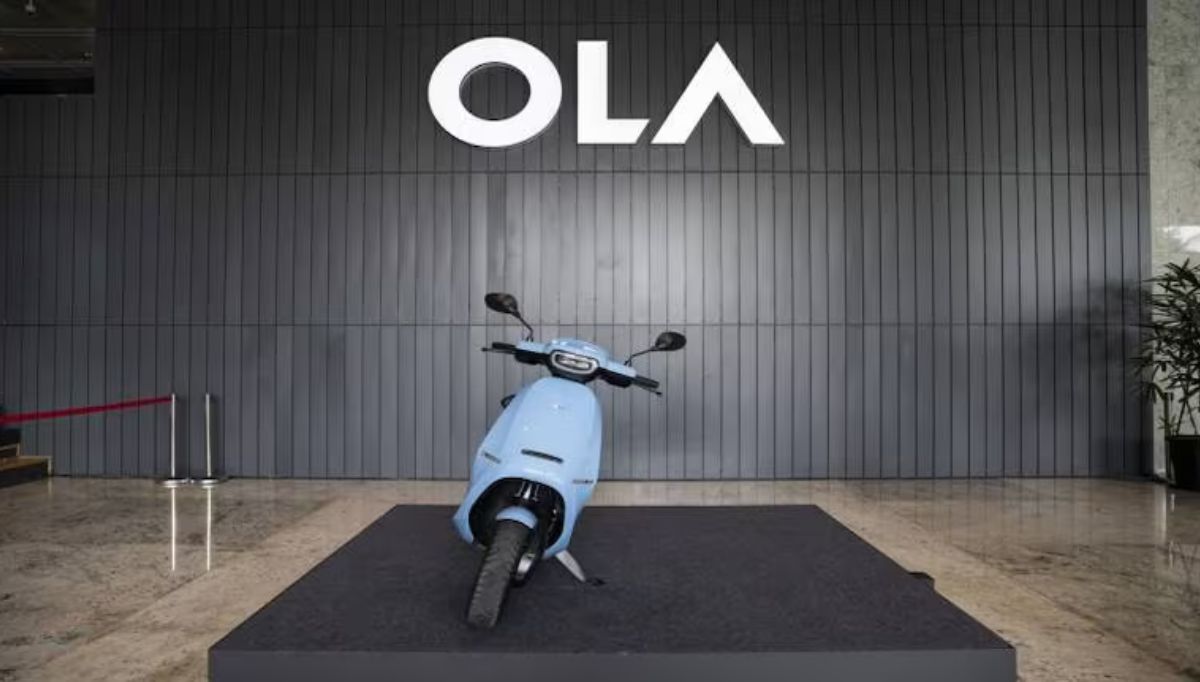

Ola Electric Introduces Ola Maps With Upgraded EV Software Move OS 4
The most recent iteration of Ola Electric's e-scooter software platform, called Move OS 4, allows for enhanced routing and a quicker, more precise search feature, according to the startup. A year after Ola announced that it was creating a specific navigation system for its cars and apps, the company has announced that Ola navigation will be used for commercial purposes on Ola EVs. Ola Electric submitted its DRHP to SEBI last month in an effort to raise more than INR 5,500 Cr through an IPO. On Thursday, January 18, Ola Electric released its in-house Ola Maps commercially along with the widespread release of the Move OS 4 software platform for its electric two-wheelers. The most recent iteration of Ola Electric's e-scooter software platform is called Move OS 4. MoveOS 4, according to the electric two-wheeler firm, has elevated navigating to an entirely new plane with Ola Maps. Improved navigation and a quicker, more precise search function are made possible by the updated software. Ola Electric claims that the revised user interface makes it easy for users to access necessary functionality without ever leaving the navigation screen. Furthermore, Ola Maps gives users the ability to mark their favourite spots for a fully customised navigation experience. Through Bluetooth, users may even locate their scooter by pushing places from their phone to it. One year after Ola announced it was working on a specialised maps system for its cars and applications and will soon be launching the system, the company announced that Ola Maps would be used for the first time on Ola EVs for commercial purposes. We are evaluating our own Ola maps! will launch in a few months on our cars and the Ola app! Bhavish Aggarwal, the CEO of Ola, stated in January of 2012. Ola Electric added that MoveOS 4 will provide over 100 new features and enhancements to the Ola S1 Gen 1 scooter range, S1 Pro (2nd Generation), and S1 Air. The update for S1 X+ is scheduled for the upcoming months. The business claimed that in addition to Ola Maps, the updated software version also includes enhancements to "Hill Descent Control" and the addition of "Cruise Control in eco-mode."


India Startup Bags from Atsuya The Genesis Innovator Award
Atsuya Technologies, a deep-tech business based in Chennai, won the National business Awards 2023's Genesis Innovator category. Tuesday night in Delhi, Union Industries Minister Piyush Goyal presented the prizes.Atsuya Technologies, a deep-tech business based in Chennai, won the National business Awards 2023's Genesis Innovator category. Tuesday night in Delhi, Union Industries Minister Piyush Goyal presented the prizes. An agency of the Union government, Startup India, announces the awards each year to honour businesses working on innovative products and solutions across a range of industries.The startup redefines operational excellence in enterprises with a focus on sustainability by utilizing cutting-edge technology like artificial intelligence (AI) and the internet of things (IoT). Atsuya Technologies stated in a press release that the company has been assisting companies across industries in making data-driven decisions, improving profitability, and promoting environmental responsibility with one integrated platform that unlocks many use cases for individual business objectives.The company went on to say that a wide range of industries, including retail, quick-commerce, oil and gas, real estate, HoReCa, and more, were using its products. The business supports 65% of the quick-commerce market and 95% of organized meat retailers in India as a technology partner. In the LPG supply chain, the company also helps to improve safety, visibility, and traceability. According to the statement, companies may reduce resource waste, easily incorporate sustainability into their operations, and move closer to reaching net-zero goals with the help of Atsuya's extensive portfolio of solutions."Deep tech and data are set to drive growth and propel us toward a net-zero economy," stated Rahul Ganapathy, CEO and cofounder of Atsuya. I firmly think that India's startup scene has the capacity to propel our country to the forefront of the world economy. I express my sincere gratitude to Startup India and the Indian government for recognizing this potential and for their steadfast assistance in fostering the expansion of entrepreneurs. Keep up with important tech and startup news. Get our daily newsletter delivered right to your inbox to stay up to date on the newest and most important tech news.Atsuya Technologies of Chennai won the National Startup Awards 2023's "Genesis Innovator" category, which is an accolade given by Startup India to up-and-coming firms nationwide. On January 16, National Startup Day, Union Industries Minister Piyush Goyal delivered the award at a ceremony in Delhi. Atsuya technology leverages cutting-edge technology like artificial intelligence (AI) and the internet of things (IoT) to transform company operations while prioritizing sustainability. According to the firm, the startup, which has been a technology partner to 95% of India's organized meat shops and 65% of the quick-commerce market, is now indispensable. The National Startup Awards honor and promote the innovations and contributions made by companies in a range of sectors.


In a pre-seed round, professional social media platform
In a pre-seed fundraising round headed by FirstCheque VC, Medial App—a professional social media platform for startup ecosystem—raised $120K from angel investors from Bangalore, Mumbai, and the US, including Nayan Jadeja, Rohitashwa Choudhary, Ankit Aggarwal, and Radhakrishnan Ramachandran.With an emphasis on feature expansion and product launch because of encouraging beta app metrics, the business intends to use the additional funding for product development, user acquisition, and testing of core app features. The majority of the funds raised, according to a Medial press statement, will go into user acquisition, app feature testing, and product development.Aishwarya Raj Pandey, Niket Raj Dwivedi, Harsh Dwivedi, and Prateek Kaien established and oversee Medial, a content-driven platform with a strong community spanning IT, product, and UI/UX industries. It serves as a hub for non-clickbait startup news, industry updates, jokes, and advice in an effort to better the community and encourage candid conversations in the workplace.Medial started out as an integrated platform for professionals in the startup business with the aim of becoming a globally relevant employment board and company profile. The app is creating a network for UI/UX designers, business analysts, venture capitalists, product analysts, and budding entrepreneurs.In addition to being a real-identity professional network similar to Github and LinkedIn, Medial provides an anonymous feature as an additional layer to improve the platform. To a lesser extent, Hood (previously Zorro), FishBowl, Blind, and Reddit may potentially pose competition for it.Medial has over 5,000 users in beta testing and intends to fully launch by the end of January 2024., a business social networking platform, raised $120,000 in its pre-seed round thanks to FirstCheque VC. Prominent angels from the US, Mumbai, Bengaluru, and Rohitashwa Choudhary, among others, Ankit Aggarwal, Radhakrishnan Ramachandran, and Nayan Jadeja, took part in the round.In a pre-seed funding round, Medial, a professional social media network, successfully raised $120,000, or around Rs 1 crore. Leading angel investors from Bengaluru, Mumbai, and the US, such as Nayan Jadeja, Rohitashwa Choudhary, Ankit Aggarwal, and Radhakrishnan Ramachandran, participated in the funding lead by FirstCheque VC. Niket Raj Dwivedi, Aishwarya Raj Pandey, Prateek Kaien, and Harsh Dwivedi launched the startup, which intends to offer more than just a standard social media platform. Medial is a community-driven center for information, specializing in tech, product, and UI/UX industries. It delivers industry updates, startup news, and expert guidance in an uncomplicated, non-clickbait way. The startup says the money obtained will go toward user acquisition, product development, and testing of the main features of the app.


















